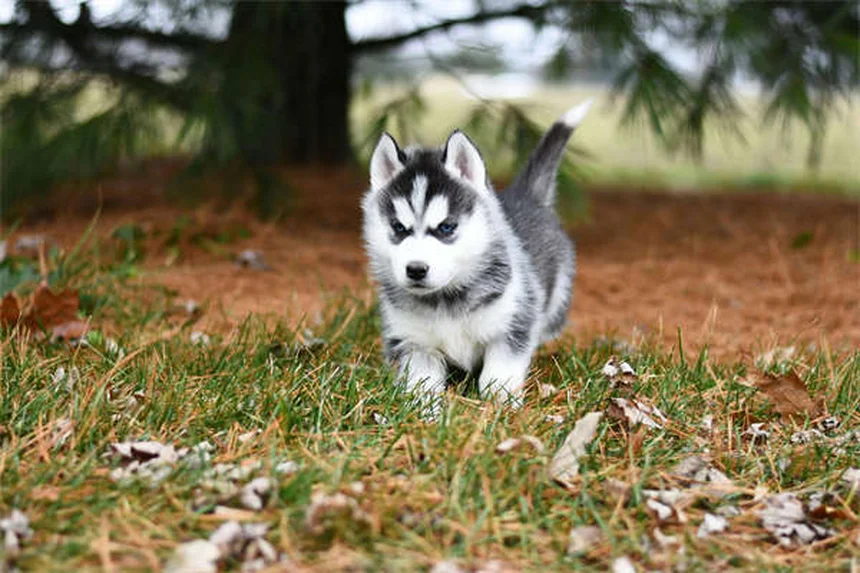Looking for the most lovable rabbit breeds to bring home? The answer is: Holland Lops, Mini Rex, Netherland Dwarfs, Lionheads, and Flemish Giants top the charts for adorable pet rabbits! As a bunny lover myself, I can tell you these breeds combine cuteness with personality that'll melt your heart. But before you rush to get one, let's talk reality - rabbits aren't just fluffy decorations. They're intelligent, social creatures needing 13+ years of commitment. That's longer than most car loans! The good news? Each of these top 5 breeds brings something special to the table, from the Holland Lop's cuddly nature to the Flemish Giant's dog-like affection. Stick around as we hop into what makes each breed unique and how to choose your perfect match!
E.g. :5 Warning Signs Your Rabbit Has Neck or Back Pain (And What to Do)
Advertisement
- 1、Meet Your Future Fluffy Friend: Top 5 Rabbit Breeds
- 2、The Superstar Bunny Breeds
- 3、Choosing Your Perfect Match
- 4、Beyond the Basics: Rabbit Care Deep Dive
- 5、The Great Indoors vs Outdoors Debate
- 6、Unexpected Bunny Benefits
- 7、Rabbit Myths Busted
- 8、Bunny-Proof Your Lifestyle
- 9、FAQs
Meet Your Future Fluffy Friend: Top 5 Rabbit Breeds
Image: Oksana Shufrych / Shutterstock
Why Rabbits Make Awesome Pets
Let me tell you why bunnies rock as pets! They're like living stuffed animals with personality plus. Did you know you can actually litter train them? That's right - no more chasing little pellets around your house!
But here's the real kicker: Every rabbit breed brings something special to the table. Natalie L. Reeves from Big Apple Bunnies (cool name, right?) says popularity changes like fashion trends - what's hot in New York might not be in Texas. But some breeds are always in style, like that perfect pair of jeans you can't stop wearing.
Rabbit Reality Check
Hold your carrots for a second! Before you fall in love with those twitchy noses, let's talk responsibility. Rabbits aren't starter pets like goldfish or hamsters. They're more like tiny, hoppy teenagers with specific needs:
| Pet Type | Average Lifespan | Vets Available |
|---|---|---|
| Dogs | 10-13 years | Common |
| Cats | 12-15 years | Common |
| Rabbits | 8-12 years | Specialized |
See what I mean? Finding a rabbit-savvy vet can be like searching for Easter eggs in December. And get this - with great care, some bunnies live 13+ years. That's longer than most middle school friendships!
The Superstar Bunny Breeds
 Photos provided by pixabay
Photos provided by pixabay
1. The Holland Lop - Your Cuddle Champion
Picture this: floppy ears, a compact body, and eyes that melt your heart. The Holland Lop is basically the puppy of the rabbit world. They max out at about 4 pounds - perfect for apartment living!
Here's why everyone loves them: They're ridiculously friendly. While some rabbits give you the cold shoulder, Holland Lops will actually seek you out for pets. My neighbor's lop, Mr. Fluffington, follows her around like a tiny, furry shadow. Just try not to smile when that happens - I dare you!
2. The Mini Rex - Velvet Wonder
Ever touched a cloud? That's what petting a Mini Rex feels like. Their fur is so soft it should be illegal! We're talking plush toy texture that makes you want to cuddle them 24/7.
But wait - there's more! These bunnies are the intellectuals of the rabbit world. Quick learners with playful personalities, they'll keep you entertained for hours. Just be warned: their intelligence means they get bored easily. Forget to provide toys, and say hello to chewed-up charger cables!
Did you know Mini Rex rabbits come in over 20 colors? From rich chocolate to stunning blue, there's a shade for every taste. My personal favorite is the castor - it looks like autumn leaves!
3. The Netherland Dwarf - Tiny But Mighty
Don't let their size fool you! These pocket-sized pals pack more personality per ounce than any other breed. Weighing just 2-2.5 pounds, they're like living tennis balls with ears.
Here's something hilarious about them: Netherland Dwarfs often don't realize how small they are. They'll challenge dogs, cats, even vacuum cleaners to dominance battles. It's like watching a furry Napoleon complex in action!
Pro tip: Their small size makes them perfect for kids (with supervision, of course). Just imagine the look on your child's face when they realize their pet fits in their backpack (not that you should carry them around like that)!
 Photos provided by pixabay
Photos provided by pixabay
1. The Holland Lop - Your Cuddle Champion
Ever seen a rabbit with a mohawk? That's the Lionhead for you - nature's little punk rocker! That signature mane makes them look like they belong on a heavy metal album cover.
But here's the surprise: beneath that wild hairdo beats the heart of a gentle companion. Lionheads tend to be calmer than other breeds, perfect for first-time owners. Their medium size (about 3.5 pounds) makes them manageable without being fragile.
Want to hear something funny? That glorious mane requires regular brushing - it's like having a tiny, furry celebrity in your home. "Sorry, can't go out tonight, gotta style my rabbit's hair!"
5. The Flemish Giant - Gentle Giant
Okay, quick question: What's better than a rabbit? A giant rabbit! Flemish Giants are the Great Danes of the bunny world, weighing up to 20 pounds. That's bigger than some dogs!
Here's why they're amazing: Despite their size, they're total sweethearts. Many owners describe them as "dog-like" in their affection. Imagine coming home to a bunny that actually wants to sit in your lap - that's the Flemish Giant experience!
But get this - their size means they need serious space. We're talking bunny-proofed rooms, not just cages. Think of it as having a very fluffy, very quiet roommate who pays rent in cuteness.
Choosing Your Perfect Match
Personality Matters Most
Here's something important: breed traits are guidelines, not guarantees. I've met feisty Holland Lops and cuddly Netherland Dwarfs. The best approach? Visit shelters and meet bunnies in person.
Ask yourself: Do you want a lap rabbit or an independent spirit? A playful acrobat or a chill companion? This isn't just about looks - it's about finding a furry friend who matches your lifestyle.
 Photos provided by pixabay
Photos provided by pixabay
1. The Holland Lop - Your Cuddle Champion
Did you know many purebred rabbits end up in shelters? It's true! Breeders aren't the only option. Rescue organizations often have amazing bunnies waiting for homes.
Here's a cool fact: adopted rabbits usually come spayed/neutered and socialized. That means you skip the "teenage bunny rebellion" phase (yes, that's a real thing!). Plus, you're giving a second chance to a deserving animal.
Remember what we said earlier about rabbit lifespans? That long-term commitment becomes extra meaningful when you're saving a life. Now that's what I call a win-win!
Beyond the Basics: Rabbit Care Deep Dive
The Secret Language of Bunnies
You know how dogs wag tails and cats purr? Rabbits have their own fascinating ways to communicate! When your bunny suddenly jumps and twists mid-air (called a "binky"), that's their version of shouting "I'm SO happy!" from the rooftops.
Here's something wild: Did you know rabbits actually grind their teeth when content? It sounds creepy but means they're in total bliss - like a feline purr in bunny language. My friend's rabbit does this every time she gets ear rubs, sounding like a tiny woodpecker!
Rabbit-Proofing Like a Pro
Think baby-proofing is intense? Wait till you bunny-proof! These furry Houdinis will find ways to chew things you didn't even know were chewable. I once found my rabbit nibbling on a textbook - apparently she wanted to "edit" my homework!
Here's a quick survival guide:
- Cover ALL wires with protective tubing (they're like spicy noodles to bunnies)
- Remove poisonous plants (lilies = bunny kryptonite)
- Block off behind furniture (rabbit Narnias lurk there)
The Great Indoors vs Outdoors Debate
Why House Rabbits Thrive
Ever seen a rabbit do the zoomies at 3 AM? Indoor bunnies develop the most hilarious personalities when they become part of your daily life. They'll "help" with chores, supervise your Netflix binges, and occasionally redecorate your carpet with artistic chew marks.
Temperature matters more than you'd think - rabbits can't handle heat above 80°F. That's why air-conditioned homes beat outdoor hutches where they can't escape summer heatwaves. Imagine wearing a fur coat in July - that's your bunny's reality!
Creating Bunny Paradise
Forget tiny cages - modern rabbit owners are building entire bunny apartments! The setup I made for my rabbit has:
- A litter box corner (yes, they can be trained!)
- A hay buffet area (unlimited salad bar)
- A cardboard castle (bunny McMansion)
- A dig box (filled with crinkly paper)
Unexpected Bunny Benefits
Stress-Busting Fuzz Therapy
Bad day at work? Nothing fixes it like bunny cuddles! Studies show stroking rabbits lowers blood pressure better than most relaxation apps. Their soft fur and warm bodies are nature's anti-anxiety medication.
Here's a fun experiment: Try staying mad while watching a rabbit wash its face. Those tiny paw movements and ear wiggles could disarm the grumpiest human! My therapist actually recommends "bunny time" as part of my self-care routine.
Surprising Allergy Advantages
Wait - aren't rabbits terrible for allergies? Actually... their dander is less irritating than cats or dogs for many people! While no pet is 100% hypoallergenic, rabbit fur tends to be more manageable.
Check out this comparison of common pet allergens:
| Pet Type | Allergen Severity | Grooming Needs |
|---|---|---|
| Cats | High | Moderate |
| Dogs | Medium-High | Varies |
| Rabbits | Low-Medium | Weekly brushing |
See? Bunnies might be the perfect compromise for sneeze-prone animal lovers!
Rabbit Myths Busted
Carrots Aren't Actually King
Bugs Bunny lied to us! While carrots make great occasional treats, a rabbit's diet should be 80% hay. Those orange veggies are like candy - too much causes tummy troubles. The real MVP? Timothy hay, which keeps their digestive systems running smoothly and teeth trimmed.
Here's what my rabbit's vet recommends daily:
- Unlimited hay (the bunny equivalent of bread)
- 1 cup greens per 2 lbs body weight (think bunny salad)
- Just 1-2 tablespoons pellets (like vitamin supplements)
They're Not "Low Maintenance" Pets
Here's a reality check: rabbits require more daily care than most cats! Their enclosures need cleaning every other day, they demand fresh veggies daily, and they require several hours of supervised playtime. It's like having a tiny vegetarian toddler who can jump three feet in the air!
But you know what? The effort pays off when your bunny greets you with happy tooth purrs or does that hilarious flop onto their side like they've suddenly forgotten how bones work. That level of trust and bonding makes every poop-scooping session worth it!
Bunny-Proof Your Lifestyle
Traveling With Rabbits? Think Again!
Ever tried taking a rabbit on vacation? Unless you're moving permanently, it's kinder to find a pet sitter. Rabbits stress easily during travel - that cross-country road trip might literally scare them to death. I learned this the hard way when my bunny refused to eat for two days after a short vet visit!
Better solution: Find a rabbit-savvy sitter or boarding facility. Many vet techs moonlight as bunny babysitters - they know how to spot early signs of illness that untrained eyes might miss.
Rabbit-Approved Home Decor
Say goodbye to your perfect Pottery Barn aesthetic! Rabbit ownership means embracing the "chewed wood accent" look. I've replaced all my lower cabinet doors with metal grates after my bunny turned them into modern art.
Here's what actually works in a bunny home:
- Ceramic tile or vinyl flooring (bye-bye security deposits)
- Metal or glass furniture legs (not the tasty wooden kind)
- Elevated plants (salad bars belong out of reach)
E.g. :BEST RABBIT BREED TO BUY??? : r/Rabbits
FAQs
Q: What's the friendliest rabbit breed for first-time owners?
A: Hands down, the Holland Lop wins for friendliness! These floppy-eared charmers are like the golden retrievers of the rabbit world. Unlike some breeds that can be standoffish, Holland Lops actually seek human attention. My friend's lop, Biscuit, greets her at the door every evening - no kidding! They're also smaller (about 4 pounds), making them easier to handle than giant breeds. Just remember - even the friendliest rabbit needs proper socialization. Start with short, positive interactions and let them come to you. Pro tip: Look for a bunny that approaches the cage front when you visit - that's usually a sign of an outgoing personality!
Q: How much space do pet rabbits really need?
A: Here's the scoop - even small breeds need more space than you might think. We're talking minimum 12 square feet for their main enclosure, plus several hours daily of supervised free-roam time. For giant breeds like Flemish Giants? Double that! I learned this the hard way when my first rabbit, Thumper, redecorated my apartment with his teeth. The solution? Bunny-proof a room with cord protectors and baseboard guards. Think of it as creating a playground where your rabbit can hop, binky (that's bunny zoomies!), and explore safely. Trust me, a happy rabbit with space is way less destructive!
Q: Are certain rabbit breeds better with kids?
A: Great question! While no rabbit is truly "kid-proof," Netherland Dwarfs and Mini Rex often work well with older, gentle children. Their smaller size (2-4 pounds) makes them less intimidating, yet sturdy enough for careful handling. But here's the catch - rabbits are prey animals that can startle easily. I always recommend teaching kids the "three-finger rule": pet with two fingers under the chin and one behind the ears, never squeezing. Supervised interaction is key - even the calmest bunny might nip if startled. Pro tip: Adopt an already socialized adult rabbit rather than a skittish baby for more predictable behavior!
Q: How much does rabbit care actually cost?
A: Let's break it down honestly - rabbits aren't cheap pets! Initial setup (cage, litter box, toys) runs $200-$500. Monthly costs? About $50-$100 for quality hay, fresh veggies, and litter. But here's where it gets real: exotic vet bills can shock you. My rabbit's emergency GI stasis treatment cost $800! Insurance helps ($15-$30/month), but you'll still need a $1,000 emergency fund. The big three expenses? 1) Spay/neuter ($200-$500), 2) Annual checkups ($100-$200), and 3) Dental care (some breeds are prone to issues). Bottom line? Budget like you're caring for a small, hoppy cat!
Q: Can you really litter train a rabbit?
A: Absolutely, and it's easier than you think! Most rabbits naturally pick a "bathroom corner" - you just need to work with their instincts. Start by placing a litter box where they already go, using rabbit-safe litter (never clumping!). Add some of their poops to "mark" it. I trained my Mini Rex in just two weeks using this method! Some pro tips: 1) Use larger boxes than you'd for cats, 2) Put hay right above the box (they like to munch while they go), and 3) Clean accidents with vinegar to remove scent markers. Just remember - even trained bunnies might leave occasional "cocoa puffs" when excited. Consider it bunny confetti!
